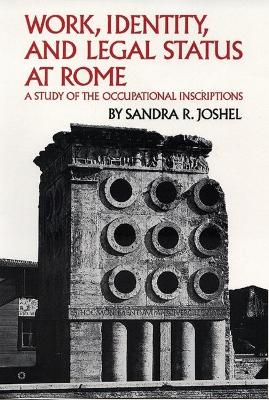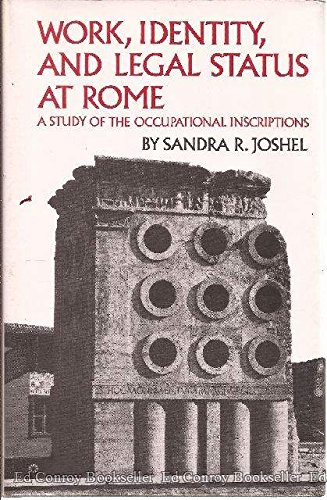Oklahoma Series in Classical Culture
2 total works
In Work, Identity, and Legal Status at Rome, Sandra R. Joshel examines Roman commemorative inscriptions from the first and second centuries A.D. to determine ways in which slaves, freed slaves, and unprivileged freeborn citizens used work to frame their identities. The inscriptions indicate the significance of work-as a source of community, a way to reframe the conditions of legal status, an assertion of activity against upper-class passivity, and a standard of assessment based on economic achievement rather than birth.
Drawing on sociology, anthropology, ethnography, and women's history, this thoroughly documented volume illuminates the dynamics of work and slavery at Rome.
v. 11
What was daily life like for a working woman in the Roman Empire? This book examines Roman commemorative inscriptions from the first and second centuries AD to determine ways in which slaves, freed slaves and unprivileged freeborn citizens used work to frame their identities. In the minutiae of the epitaphs and dedications she identifies the "language" of the inscriptions, through which the voiceless classes of Ancient Rome spoke. The inscriptions indicate the significance of work - as a source of community, a way to reframe the conditions of legal status, an assertion of activity against upper-class passivity, and a standard of assessment based on economic achievement rather than birth.

